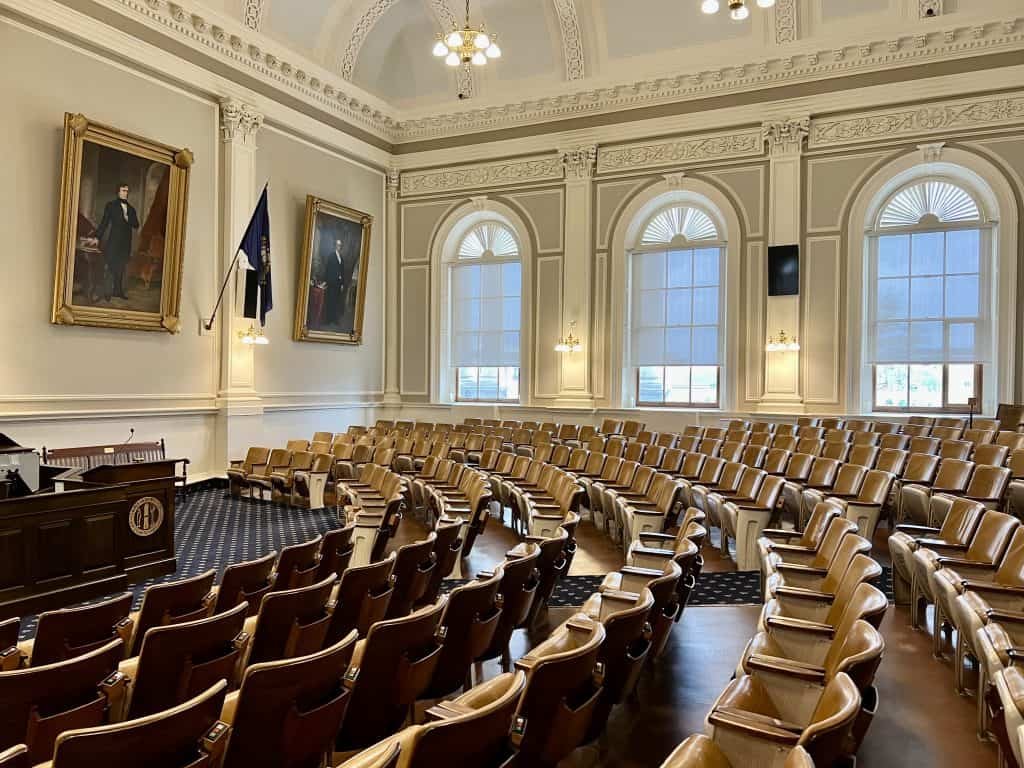NH Citizens Speak Against HB 254, “End-of-Life Freedom” Bill At Pre-Hearing Press Conference
Before the House Judiciary Committee met to hear arguments for and against HB 254, the “End-of-Life Freedom” bill on Jan. 29th, members of the NH Coalition for Suicide Prevention held a brief press conference to articulate why they oppose the legalization of physician-assisted suicide in NH.
HB 254 Puts Veterans And Those With Disabilities At Risk
"I'm here to share with you an inconvenient truth," said Lisa Beaudoin, of Strategies for Disability Equity. "Any bill that provides for lethal prescriptions is a threat to vulnerable populations. The National Council on Disabilities, the independent agency that reports to the President and the U.S. Congress, writes that physician-assisted suicide in an inherent danger to people with disabilities. Their key recommendation is that states should not legalize any form of assisted suicide. Our nation’s top disability policy professionals can’t all be wrong about this.”
According to Attorney Sheila Zakre, who has a disability (blindness) and represents many people with disabilities, “Another law that offers greater protection than HB254 does is the NH statute that requires that, when an individual makes a will, two witnesses must swear before a notarial officer that the individual was of sane mind and under no undue constraint or influence. HB254 does not require sworn witnesses, and they do not have to know the individual other than from the picture on a driver’s license. Thus, HB254 makes it easier for an individual to sign a paper to end her life than it is to decide who gets her possessions after she dies. Is this the value we want to promote in New Hampshire?”
Disabled Air Force veteran Melinda Simms asks that we consider the message HB 254 sends about suicide as a solution. “My life has value. Every disabled veteran’s life has value. Every disabled person’s life has value. This isn’t about choice, it’s about pressure.”
“The same state that wants to prevent veteran suicides is now promoting a law that would push us towards death,” she adds. “We can’t let our society normalize suicide as a solution.”
Help-Seeking, Not Death-Seeking
“Suicide is an epidemic among veterans living with TBI and co-occurring TBI/PTSD,” said Steve Wade, Exec. Director of the Brain Injury Association of NH and one of the founders of the NH Coalition for Suicide Prevention. “Veterans have the greatest risk for suicide among all vulnerable populations – 15 times greater risk than the general population. Our team has been building on the work of the NH legislative Commission on TBI and PTSD. This Commission focused on building a help-seeking culture among veterans with TBI and PTSD. A key focus is on reducing barriers to care and normalizing help-seeking among veterans and their families.”
"Our concern is with a bill like this,” adds Wade, “Is that we're transitioning from a help-seeking culture to more of a culture of folks trying to end their lives. It's just the total opposite of all the work we've done in the last five years. That's another reason why we don't want to open this door."
In his remarks, Rep. Jonah Wheeler (D-Peterborough) asked, “How sick is our society as to where we must debate human life as a budget-saving measure, rather than talking about how we can make our healthcare system the best in the world and to make sure every person, regardless of how much money they make or who they are as a person, has the right to good healthcare? I’ll be voting against this legislation and urging my colleagues to do so as well.”
For more information about the NH Coalition for Suicide Prevention, visit www.zerosuicidesnh.org.

